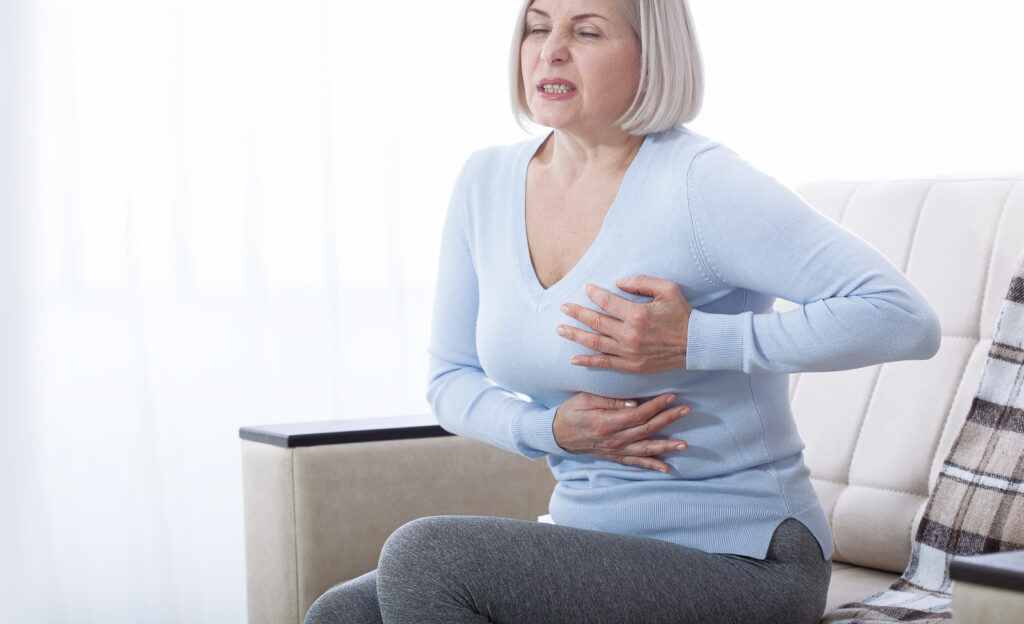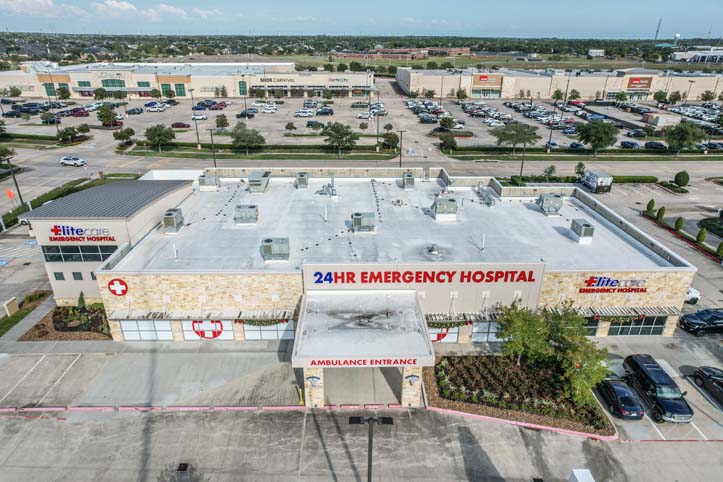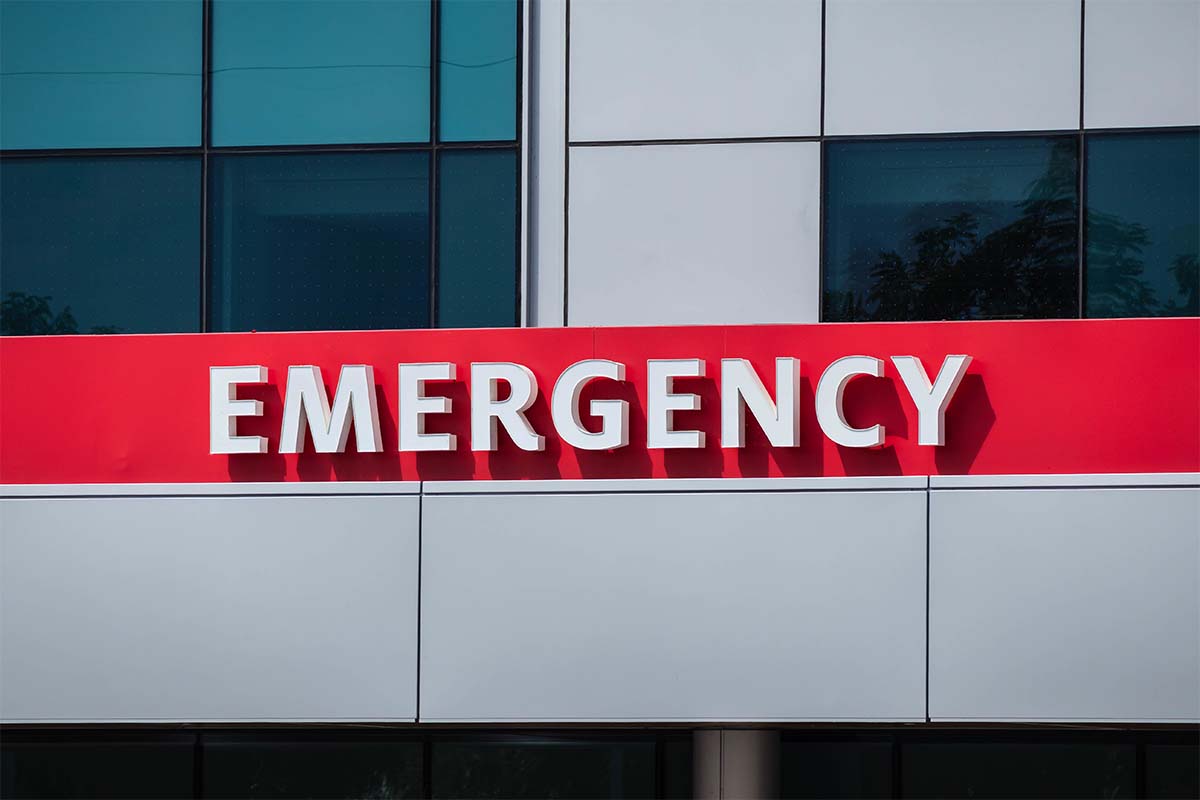
Nearly half of all heart attacks have no symptoms at all — but that doesn’t mean they’re any less deadly than heart attacks with symptoms.
They are described as “silent” because when they occur, their symptoms lack the intensity of a classic heart attack, such as extreme chest pain and pressure; stabbing pain in the arm, neck, or jaw; sudden shortness of breath; sweating, and dizziness. (Harvard)
People who have a silent heart attack might later recall that they had indigestion, the flu, or a strained chest muscle. But a silent heart attack, like any heart attack, involves blockage of blood flow to your heart and possible damage to the heart muscle. (Medical News, 2019)
Silent Myocardial Infarction (SMI) – Unaware of Possible Danger
Just like the name implies, an SMI is a heart attack that has either no symptoms or minimal symptoms or unrecognized symptoms, but it is like any other heart attack where blood flow to a section of the heart is temporarily blocked and can cause scarring and damage to the heart muscle. The rupture causes a blood clot to form in the artery, leading to an acute blockage. The heart muscle is supplied by the blocked artery immediately becomes ischemic (starved for oxygen), which typically leads to chest pain or other alarming symptoms. Unless the blockage is relieved within a few hours, the muscle dies. It is the death of a portion of the heart muscle that constitutes a heart attack. (Forgoros 2020)
According to one large study, 45 percent of heart attacks may be silent. The problem, of course, is that acute therapy cannot be given if everyone is unaware that a heart attack is occurring, and rapid therapy is critical if the amount of heart muscle damage caused by a heart attack is to be minimized. (Forgoros, 2020)
Causes of a Silent Heart Attack in Women
A lot of studies say that silent heart attacks are more common in women than in men; however, it also suggests that women experience symptoms for several weeks before a heart attack. (Harvard Health Publishing, 2019)
According to Medical News Today, it is vital for a woman who experiences any of these symptoms to seek help immediately, as heart attacks can be fatal, regardless of symptoms are mild or severe.
The American Heart Association’s “Go Red for Women Campaign” gives symptoms of a possible heart attack:
Chest pain – The most common symptom of a heart attack in both males and females is chest pain or discomfort and this can be described as tightness, pressure, squeezing or aching.
Unusual fatigue – Unusual fatigue is often reported in the weeks leading up to a heart attack and can be experienced just before the event occurs. However, at times simple activities that do not require much exertion can lead to feelings of being exhausted.
Weakness – Feeling weak or shaky is a common acute symptom of a heart attack in a female, which possibly accompanied by anxiety, dizziness, fainting, or feeling light-headed.
Shortness of breath – Shortness of breath or heavy breathing without exertion, especially when accompanied by fatigue or chest pain, may suggest heart problems.
Excessive Sweating – Excessive sweating without a normal cause is another common heart attack symptom in women. Feeling cold and clammy can also be an indicator of heart problems.
Upper body pain – This is usually non-specific and cannot be attributed to a muscle or joint in the upper body which can be affected include the neck, jaw, upper back or either arm. The pain can start in one area and gradually spread to others, or it may come on suddenly.
Sleep disturbances – Difficulty getting to sleep and unusual waking may be issues before a heart attack. Almost half of women reported issues with sleep in the weeks before they had a heart attack. These disturbances may involve difficulty getting to sleep, unusual waking throughout the night, or feeling tired despite getting enough sleep.
Stomach problems – Some women may feel pain or pressure in the stomach before a heart attack. Other digestive complaints associated with a possible heart attack can include indigestion, nausea or vomiting.
Heart Attack Post-Menopause
The risk of heart attack increases due to falling estrogen levels after menopause and bring symptoms such as:
· Pain or discomfort in the arms, back, neck, jaw, or stomach
· Rapid or irregular heartbeat
· Severe chest pain
· Sweating without activity
If you have not had a cardiac evaluation, now is the time to schedule one, especially if you’re 40 or older or if you have a family history of heart disease or stroke. (Medical News Today)
What Is SCAD?
Unlike a more typical heart attack caused by a rupture of plaque in the arteries, a SCAD heart attack starts with a tear in the wall of an otherwise normal artery. The tear tunnels within the wall of the artery, and its effect blocks the artery and blood flow to the heart muscles, leading to a heart attack.
Although SCAD causes a small percentage of heart attacks overall, it is responsible for 40% of heart attacks in women under the age of 50. And it mostly happens to women — more than 90% of SCAD patients are female. (Clopton 2018)
Our Board-Certified ER Physicians Are Trained for Cardiac Patients
We are guided by the principle that people deserve faster, better emergency medical care than what they generally receive at a large hospital ER. Our facility offers a clean, comfortable, and friendly atmosphere when you need it most. Patients at enjoy an outstanding level of medical service provided by committed medical professionals and delivered in a prompt, efficient fashion. Whether it is a cardiac emergency or any other medical emergency, our diagnostics such as labs and radiology are delivered in minutes – not hours. Your life may depend on it. We are open 24/7 – 365 days to serve you quickly. When time is of the essence, choose care excellence at [FACILITY NAME].
Work Cited
Fogoros, Richard N. “Why Some Heart Attacks Are Silent.” Verywell Health, 6 Jan. 2020, www.verywellhealth.com/silent-heart-attacks-1746018
“What Is a Silent Heart Attack?” Www.goredforwomen.org, www.goredforwomen.org/en/about-heart-disease-in-women/facts/silent-heart-attack-symptoms-risks
Harvard Health Publishing. “The Danger of ‘Silent’ Heart Attacks.” Harvard Health, 2019, www.health.harvard.edu/heart-health/the-danger-of-silent-heart-attacks.
Clopton, Jennifer. “SCAD: The Heart Attack That Strikes Young Women.” WebMD, WebMD, 19 Mar. 2018, www.webmd.com/heart-disease/news/20180319/scad-heart-attack-strikes-young-women
“Heart Attack in Women: 8 Symptoms and Risk Factors.” Medical News Today, MediLexicon International, www.medicalnewstoday.com/articles/321528
















